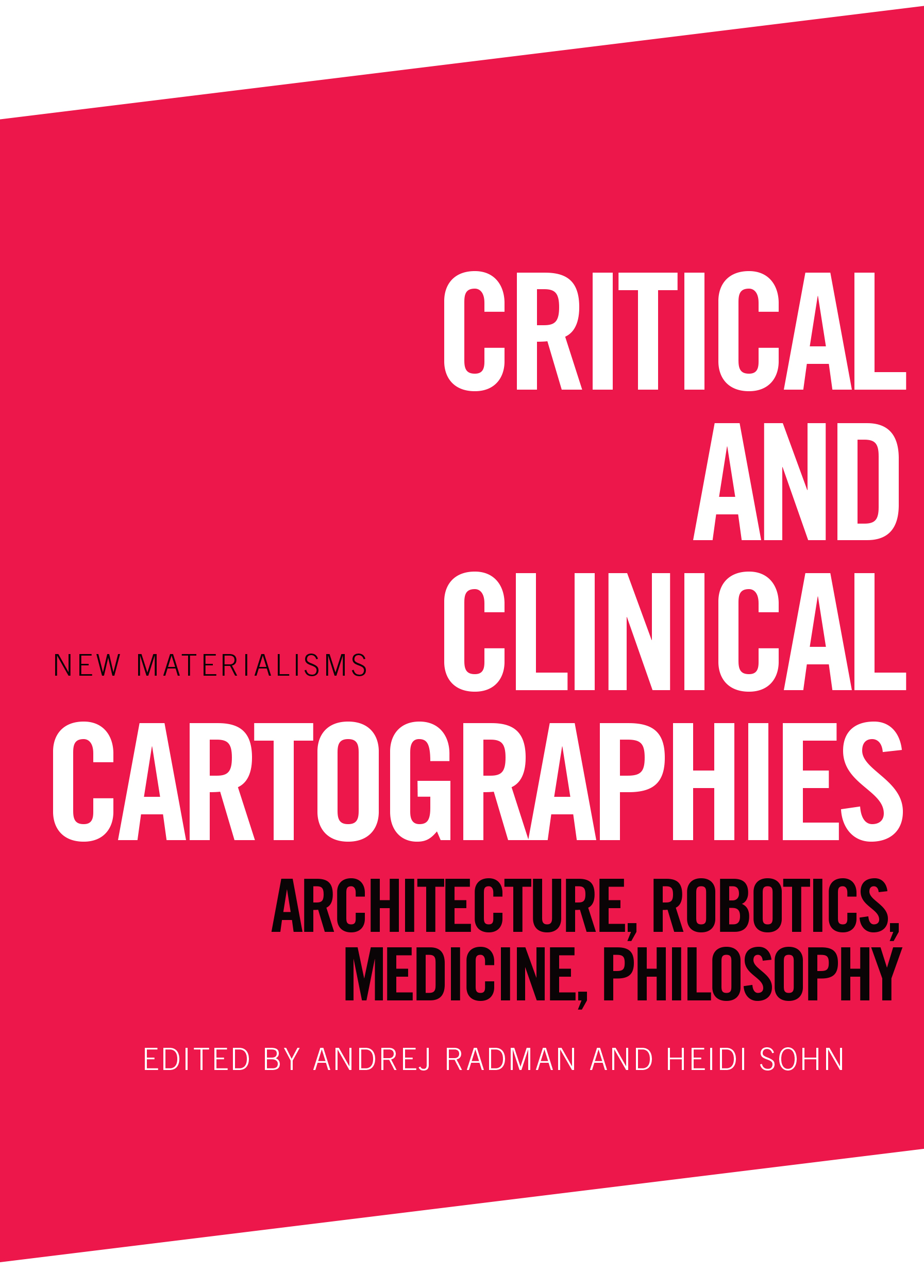Critical and Clinical Cartographies
Architecture, Robotics, Medicine, Philosophy
Major questions addressed in the 3C project:
- What is the impact of the Digital Turn on the contemporary medical and architectural education and/or practice?
- How does the Posthuman Turn influence the possible convergence of medical and architectural education and/or practice?
- How has the biopolitical concept of care mutated under the proliferation of digital technology?
- How could medical research contribute to architectural design and how could design, in turn, contribute to the improvement of health care?

This collection answers, through an impressive range of perspectives, the call of Nietzsche’s ‘great health’ – the health that ‘one does not merely have but also acquires continually,’ an impersonal health that traverses the whole of life. Displaying the unique ability to embody and map out those pulsing vitalities at the always more-than- and other-than-human intersections of architecture, robotics, medicine and philosophy, these chapters ultimately carry forward Deleuze’s ‘critical and clinical’ answer to Nietzsche’s call. Enjoy this symptomatology! (Review by Gregory J. Seigworth, Millersville University, co-editor of The Affect Theory Reader)
3C arises from a transdisciplinary conference (2014) organised by the TU Delft Architecture Department’s Theory Chair and Hyperbody, in cooperation with the Bio Mechatronics and Bio Robotics Section of the Department of Bio Mechanical Engineering, TU Delft. The book project (2017), published by Edinburgh University Press, rethinks medical and design pedagogies in the context of both the Affective and Digital Turns that are occurring under the umbrella of New Materialism. The collection creates the ideal terrain for architecture and medical technologies of care to meet with robotics, alongside the emerging ‘materialist landscape’.
Facts
| Role TU Delft: | Lead partner |
| Project duration: | November 2014 - February 2017 |
| TU Delft researchers: | Andrej Radman Heidi Sohn Stavros Kousoulas Kas Oosterhuis Jenny Dankleman |
Project partners
Utrecht University, ENSA Paris-Malaquais, Cornell University, Edinburgh University Press, Academy of Fine Arts Münster, University College London, University of Sidney, Erasmus University, Ghent University